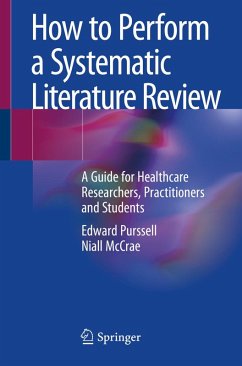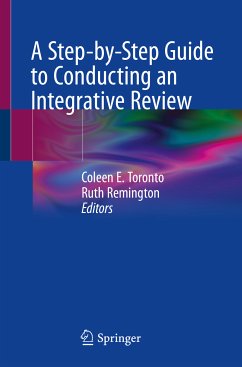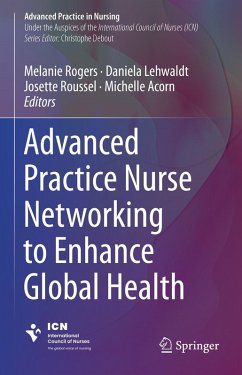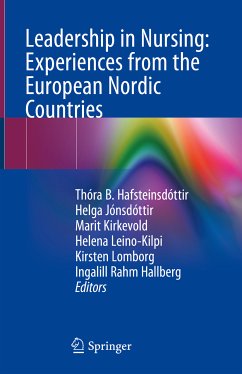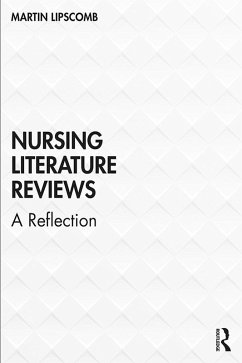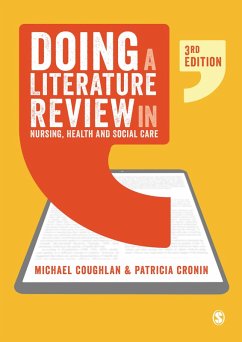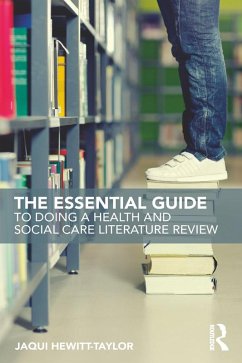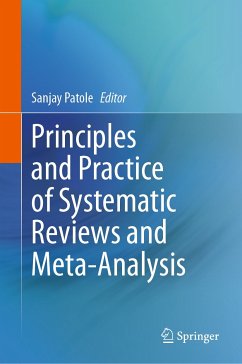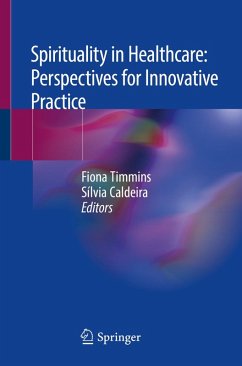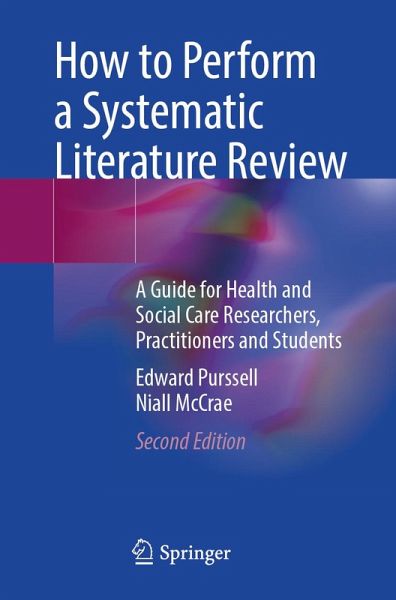
How to Perform a Systematic Literature Review (eBook, PDF)
A Guide for Health and Social Care Researchers, Practitioners and Students
Versandkostenfrei!
Sofort per Download lieferbar
40,95 €
inkl. MwSt.
Weitere Ausgaben:

PAYBACK Punkte
20 °P sammeln!
This new edition is an authoritative and accessible textbook to an activity that is often found overwhelming. The systematic review is a rigorous method of collating and synthesizing evidence from multiple studies, producing a whole greater than the sum of parts. The authors steer readers on a logical path through the process, taking account of the different needs of researchers, students and practitioners in health and social care. Practical guidance is provided on the fundamentals of systematic reviewing and also on advanced techniques such as meta-analysis. Examples are given throughout, wi...
This new edition is an authoritative and accessible textbook to an activity that is often found overwhelming. The systematic review is a rigorous method of collating and synthesizing evidence from multiple studies, producing a whole greater than the sum of parts. The authors steer readers on a logical path through the process, taking account of the different needs of researchers, students and practitioners in health and social care. Practical guidance is provided on the fundamentals of systematic reviewing and also on advanced techniques such as meta-analysis. Examples are given throughout, with a succinct glossary to support the text.
This new edition updates the first edition by considering a range of new and emerging issues in the systematic review process. In particular:
. The need for evidence to be systematically appraised in a timely manner, particularly during public health emergencies and when urgent patient care issues are being considered.
. The balance between speed and comprehensiveness.
. New and developing areas of interest, such as living reviews and rapid reviews, both of which increased during Covid-19.
. Advances in methodologies, and in particular meta-analysis methods
. The introduction of AI and other automated processes of data management
This up-to-date, accessible textbook will satisfy the needs of students, practitioners and educators in the sphere of health and social care. The authors will advise some freely available or inexpensive open source/access resources (such as PubMed, R and Zotero) to help students how to perform a systemic review and to see how this informs the guideline and decision making process.
This new edition updates the first edition by considering a range of new and emerging issues in the systematic review process. In particular:
. The need for evidence to be systematically appraised in a timely manner, particularly during public health emergencies and when urgent patient care issues are being considered.
. The balance between speed and comprehensiveness.
. New and developing areas of interest, such as living reviews and rapid reviews, both of which increased during Covid-19.
. Advances in methodologies, and in particular meta-analysis methods
. The introduction of AI and other automated processes of data management
This up-to-date, accessible textbook will satisfy the needs of students, practitioners and educators in the sphere of health and social care. The authors will advise some freely available or inexpensive open source/access resources (such as PubMed, R and Zotero) to help students how to perform a systemic review and to see how this informs the guideline and decision making process.
Dieser Download kann aus rechtlichen Gründen nur mit Rechnungsadresse in A, B, BG, CY, CZ, D, DK, EW, E, FIN, F, GR, HR, H, IRL, I, LT, L, LR, M, NL, PL, P, R, S, SLO, SK ausgeliefert werden.



